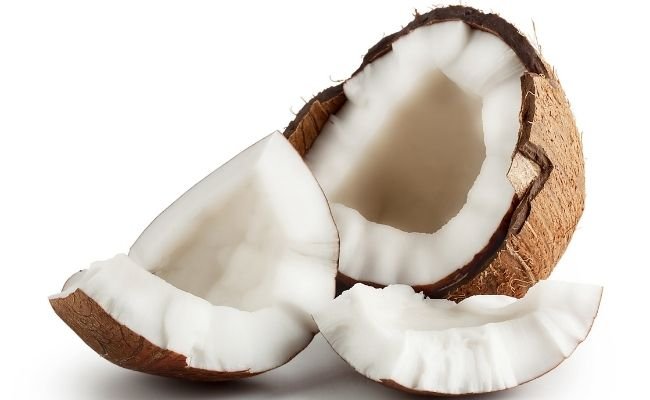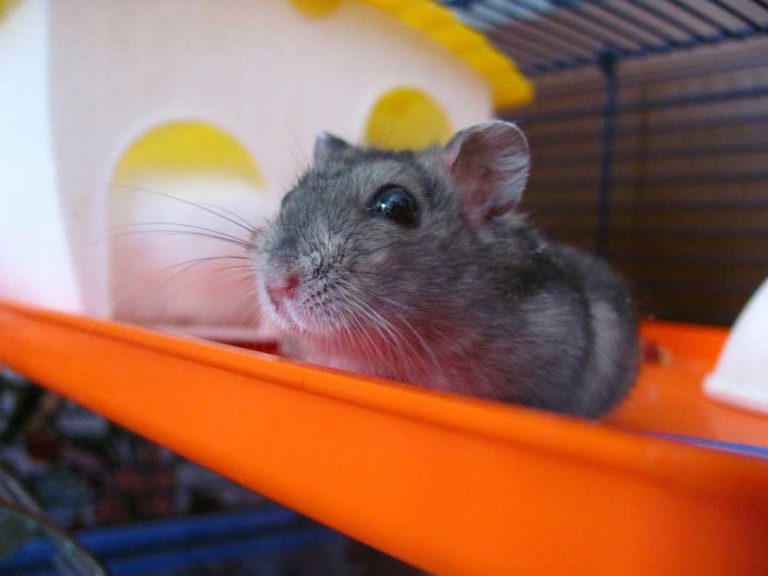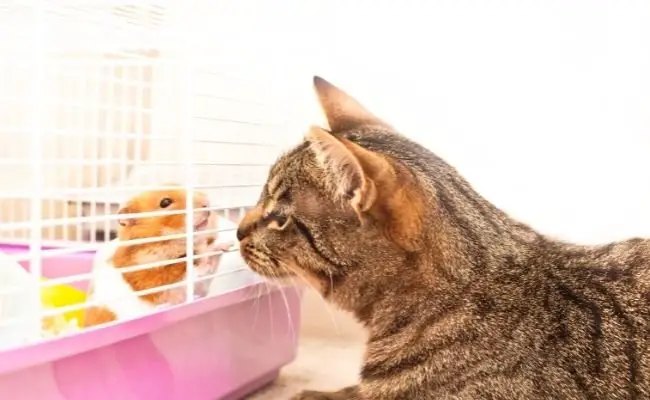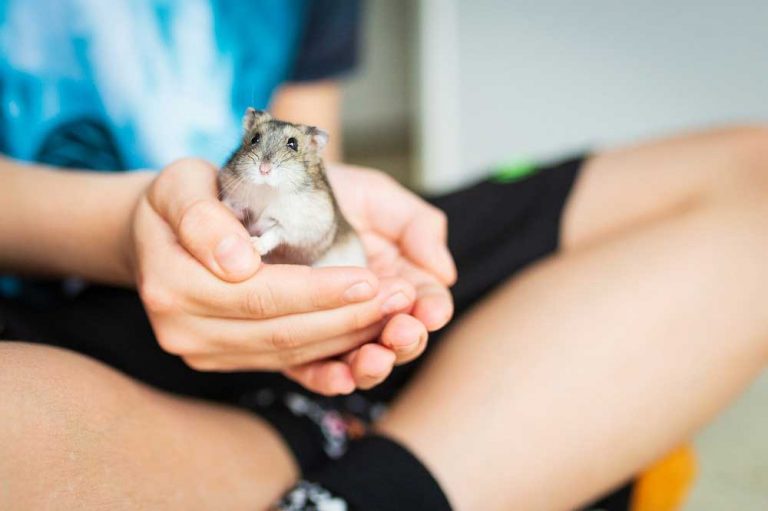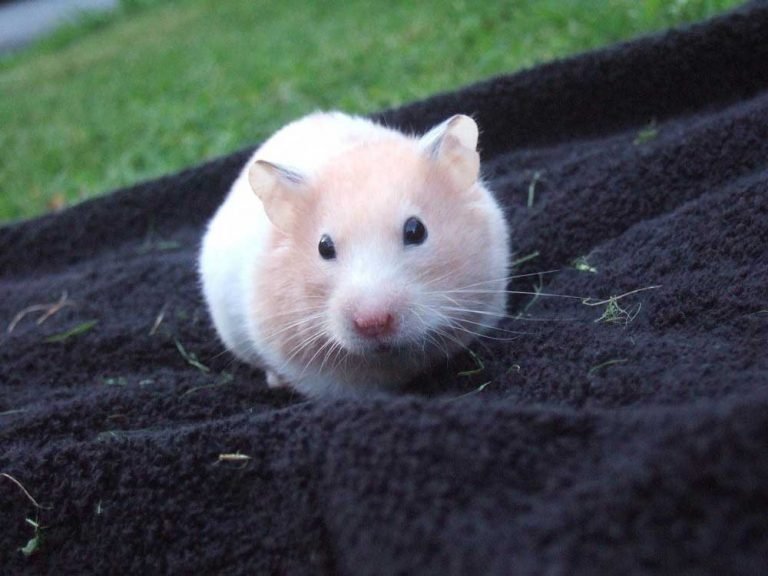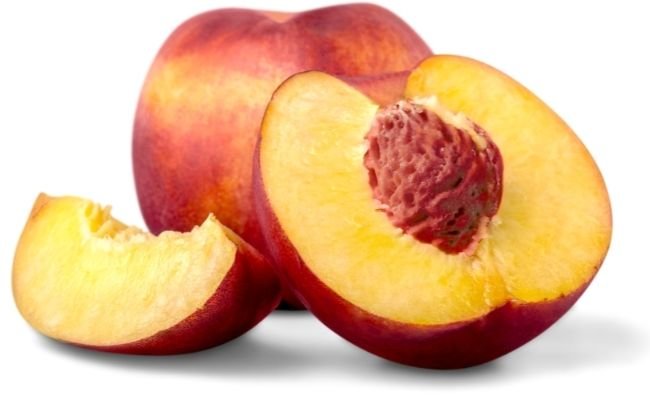Can Hamsters Eat Coconut? Here’s The Answer
You have been giving your hamster apples, papayas, banana, mango, spinach, and other healthy snacks for a while and feel it’s high time to try something new. You are thinking of incorporating coconut in your hamster’s diet, but you are not sure if it is safe for them to eat. So, you are asking yourself, “Can hamsters eat coconut?”
The answer is yes, you can feed your hamster a small amount of dried or fresh coconut. However, if your pet has diabetes, it’s best to avoid feeding them coconut because it can worsen their condition.
And there you have it- if your hamster pet isn’t diabetic, go ahead and give them coconut. But before that, stick around to know how you should go about it so that you don’t harm your furry friend.
Basic Information About Coconut
Before we discuss anything else, first things first. We have to equip ourselves with the right coconut-related information so that we can be knowledgeable when it comes to feeding them to hamsters.
Let’s start off by learning what coconut is all about.
First and foremost, when we talk about coconut in this article, we are referring to the fruit and not the tree. Keep that in mind.
Coconut has three layers- the outermost layer is thick and hard with a brown color; it’s called the husk or pericarp. Inside this layer, there’s a white fleshy layer that covers the inside of the coconut; it’s called the mesocarp. At the very center of the coconut is another shell, but this time, it has a hard core and thickness similar to that of an eggshell; this is called the endocarp.
Coconut also has two types- the young coconut and the mature coconut. Young coconut is similar to the fruit that we usually buy at the grocery. You can just cut it open and eat its flesh with a spoon.
On the other hand, mature coconut is like a grain and has a lot more health benefits than young coconut. This fruit has more nutritional value, most especially with its high oil content.
Nutritional Value of Coconut

Back to what we were initially discussing. Let’s now proceed with the task of knowing the nutritional value of coconut before we can perfectly answer “Can hamsters eat coconut?”
100 grams of dry shredded coconut meat contains the following nutrients:
- Calories- 650
- Carbohydrate- 25 grams
- Dietary fiber- 18 g
- Protein- 7.5 g
- Total fat- 66 g
- Sugar- 23 g
- Vitamin B6- 1.2 mg
- Iron- 4 mg
- Calcium- 10 mg
- Magnesium- 240 mg
- Phosphorus- 570 mg and more.
One thing to keep in mind is that coconut is more nutritious when it’s dried. Actually, when in this form, it’s about twice as nutritious when compared to fresh coconut meat. All of its beneficial vitamins and minerals are better preserved when it’s dried.
Why Hamsters Should Eat Coconut?
If you are wondering why you should feed your hamster dried or fresh coconut meat, here are its top three health benefits.
Helps in Digestion: We have lots of fibers in coconut; both soluble and insoluble fiber. Fiber has a lot of health benefits for humans, but what makes it especially good for hamsters is that it can help prevent digestive issues like diarrhea.
Helps Treat Constipation: Fiber is also known to help relieve constipation. Whether you feed your hamster dried or fresh coconut, it will benefit from its high fiber content.
Helps Lessen Bad Breath: Dietary fiber can be a remedy to bad breath. Feeding your furry pet with coconut meat makes them happy and healthy by giving their teeth a good scrubbing. This way, the stinky smell that comes from their mouth will be minimized.
Help Promote Heart Health: Coconut contains coconut oil which helps boost good cholesterol and keeps bad cholesterol levels low. The potassium content also promotes heart health and is good for hamsters suffering from cholesterol and a higher risk of blood pressure.
Boosts Immunity: Since it contains Zinc, coconut will go a long way to helping improve a hamster’s immunity. What that means is that your furry friend will be able to fight off diseases much easier, so your pet will have less health issues.
Weight Loss: This may sound controversial, especially considering that this tropical fruit with a high fat content, but here’s the thing- unsaturated fats are healthy when it comes to weight loss. Again, the high fiber content helps promote fullness, so your hamster eats less food during mealtime. Hence, if your hamster has a high risk of obesity, give them coconut in moderation.
Tips When Feeding Your Hamster Coconut?
When you have a bag of dried coconut meat, here are the things that you need to put into consideration:
Make Sure It Is Dried and Unsweetened
If it has a sweet taste, then your hamster won’t like it as much as you would. Also, if it’s sweet then its sugar content will be too high, which is not good for your furry pet especially if they are at a higher risk of developing diabetes.
Make Sure It Is Shredded
You don’t want to feed your hamster big chunks of coconut because this may cause indigestion and discomfort. It’s advisable to give the shredded variety as it’s easier to chew.
Don’t Offer It As A Regular Diet
Although it has a lot of health benefits, it’s still not the best idea to feed your furry pet with coconut on a daily basis. This is because like humans, hamsters require different nutrients and foods in order to stay healthy and balanced. An occasional coconut treat will however be good and healthy for your pet.
Begin Small
Like normal hamster food, it is recommended that you first try out your pet’s new delicious treat with small sizes. See how they react to it before you slowly increase the amount to the recommended levels.
How Much Coconut Should Hamsters Feed?
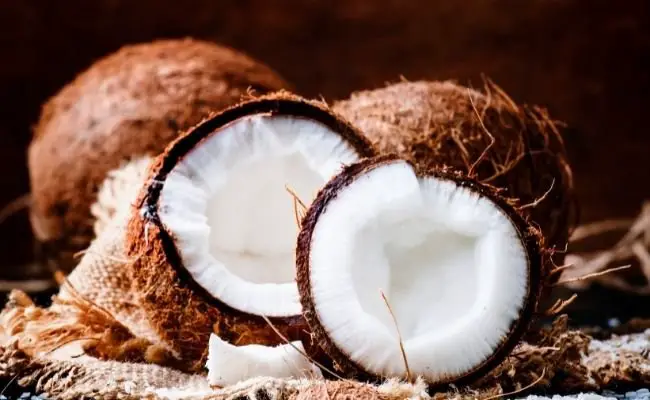
As seen, coconut is a rich source of nutrients that are good for hamsters. However, you still can’t overlook the significance of keeping their coconut intake levels within the recommended levels.
Now, about the quantity, it will depend on your hamster’s breed. Larger hamsters with larger dietary needs will need more coconut compared to the smaller breeds with smaller tummies.
What Amount of Coconut Should A Syrian Hamster Eat?
When it comes to intake levels, Syrian hamsters need more than any of the other hamster species. If you have this kind of hamster, give an inch piece of coconut. That should come at most twice a week.
What Amount of Coconut Should A Robo Hamster Eat?
Robo hamsters are smaller than the Syrian hamsters, so they need less coconut or at least less often. You can give these pets an inch-sized coconut piece, just as the bigger counterparts. However, that should only be once a week!
What Amount of Coconut Should Dwarf Hamsters Eat?
Last but not least, dwarf hamsters will require an even smaller piece of coconut. You can give them half an inch of coconut piece. The maximum number of times they can take this treat is two a week.
Should You Give Hamsters Coconut Water?
While coconut water won’t make your hamster sick, we don’t recommend it. The water content in the coconut flesh is enough for them. Actually, plenty of it can make trigger conditions such as diarrhea.
Is Coconut Oil Safe for Hamsters?
As aforementioned, there are many health benefits of coconut for your pet including promoting a healthy coat and skin. It also improves heart health.
However, there are some conditions to remember before you start using coconut oil on your hamster:
- Make sure they aren’t allergic to it
- Give them the right amount
- Include it in their diet slowly
Can Hamsters Have Coconut Milk?
Yes, hamsters can have coconut milk. However, it should only be in limited quantities since its laxative. Like coconut oil, there are lots of health benefits that your hamster can get from coconut milk. They include:
- Promoting a healthy coat and skin
- Supporting immunity function by building up their body’s defense mechanisms
- Providing more energy for their daily tasks (i.e., exercising, grooming themselves)
Can Baby Hamsters Have Coconut?

If you have a baby hamster, you already know that they don’t eat everything that their parents or adult hamsters eat. So, can baby hamsters have coconut? We recommend that you don’t feed your baby hamster coconut. Give their digestive system time to develop and then you can slowly introduce coconut and other treats.
Can I Give Coconut Shell to Hamsters?
The shell isn’t going to affect your pet when they eat it. However, it’s too hard and hamsters will more often use it for wearing down their teeth. Only ensure that you give a small piece of coconut shell at first and see how your pet reacts to it.
Health Risks of Feeding Your Hamster Coconut
Before I proceed, let me make things clear; coconut remains safe for your hamster until given to them at recommended levels. Now, there are some cases wherein you have to be careful about how much coconut they eat, most especially the dwarf hamsters!
Here are some of the health risks of coconut;
- Diabetes: Keep in mind that coconut contains high amounts of fat. It means that it can trigger serious conditions such as Type 2 diabetes, especially if your hamster is a big eater and has a weight problem.
- Diarrhea: This health condition occurs when they consume too much coconut or in cases wherein their bodies are not yet fully ready to handle the fatty food. Make sure you don’t feed your hamster coconut milk.
- Colic: This health condition occurs when their digestive system isn’t yet fully developed to support that type of food. You can limit the amount they eat until their bodies are ready for it (usually around 3 months).
Conclusion
As you can see, it’s safe to feed your hamster coconut as long as you don’t give it to them in larger quantities. Also, keep this treat away from your hamster if diabetic. But generally, coconut is a healthy treat that Syrian, Robo, and Dwarf hamsters will love!

